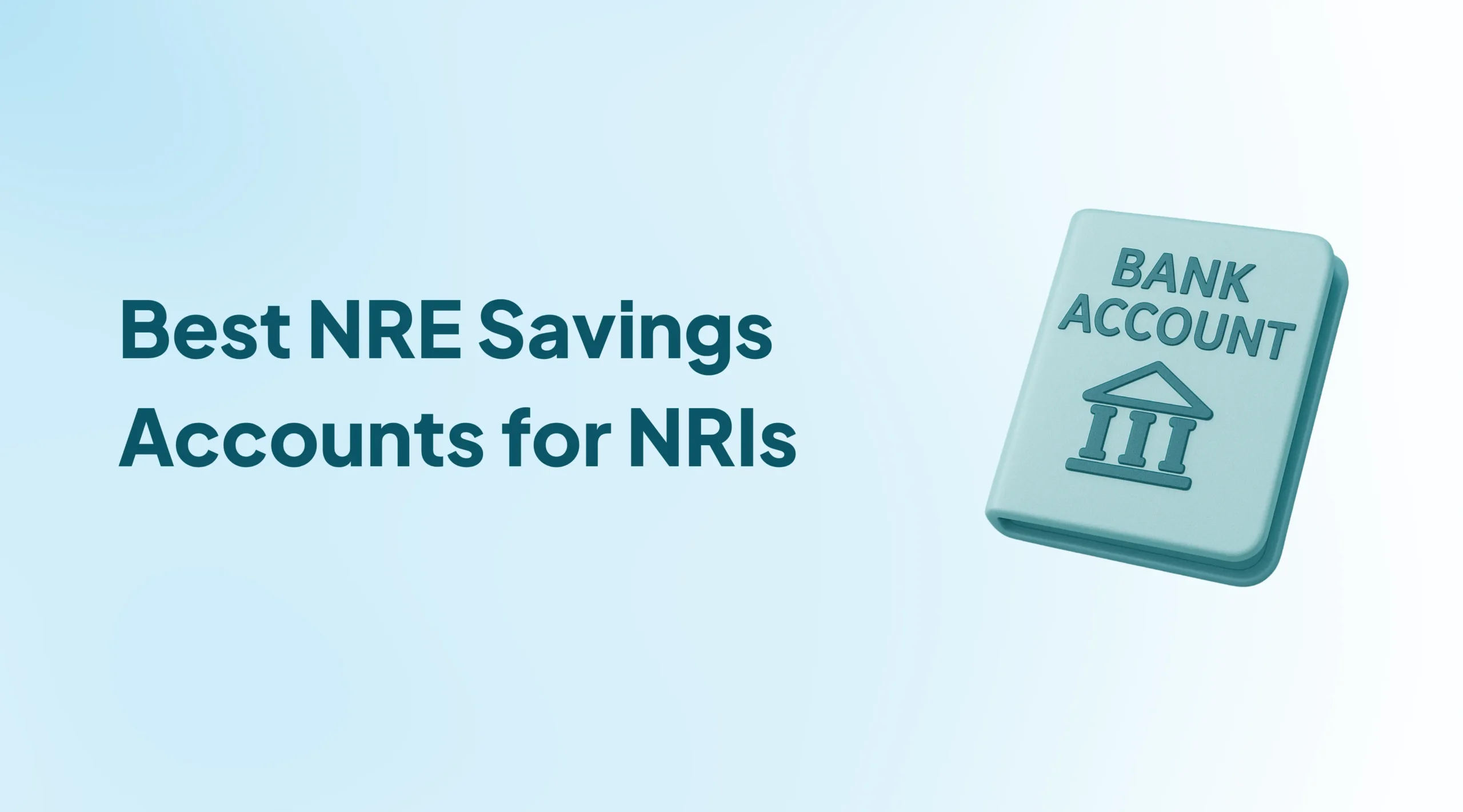When you’re living outside India, managing your money back home isn’t just a routine task—it’s a responsibility. NRIs often find themselves juggling between high remittance fees, clunky banking apps, or limited customer support due to time zones. That’s where a reliable NRE (Non-Resident External) savings account steps in. It’s more than just a place to park your rupee savings. It’s your gateway to easy remittance, tax-free interest, and effortless access to Indian banking services from anywhere in the world.
But with so many options, which bank should you go with?
Let’s dive in.
What Makes an NRE Account Ideal for NRIs?
An NRE account isn’t just about interest rates. It’s about convenience, global access, and trust. Here’s what NRIs typically look for:
- Tax-free interest income in India
- Full repatriation of both principal and interest
- UPI access, international debit cards, and mobile banking
- Low minimum balance and transparent fee structures
- Responsive customer support, ideally with 24/7 helplines
Think of your NRE account as a bridge between your life abroad and your financial commitments in India. The smoother that bridge, the better your experience.
How We Picked the Top 5 for you?
Not every NRE account is built the same. We evaluated over a dozen Indian banks based on the following factors:
Interest Rates
Let’s face it: money should grow while it rests. Higher interest rates mean more savings with zero tax in India. We considered latest rate slabs for savings and fixed deposits offered to NRIs.
Repatriation & Tax Benefits
All NRE accounts are repatriable and tax-free. But ease of documentation, real-time fund transfer tracking, and repatriation limits were also assessed.
Digital Features & UPI/Global Cards
Today’s NRIs use mobile wallets and UPI apps just like any resident. Some banks still restrict UPI with international SIMs—others offer UPI for NRIs without extra charges. We ranked higher those banks that have embraced truly digital banking for NRIs.
Fees & Minimum Balance
NRIs hate hidden charges. We reviewed each bank’s monthly average balance requirement, ATM withdrawal fees, debit card issuance/renewal, and currency conversion costs.
Customer Feedback
We scoured Reddit, GoINRI, PolicyBazaar, and Quora to see what actual NRIs were saying. The tone was clear: “We want a bank that’s reachable when we’re not in the same time zone.” User reviews played a key role in final rankings.
🏦 Our Top 5 Picks at a Glance
After weighing all the factors, these are our top NRE savings accounts in India for 2025:
1. SBI NRE Savings Account
India’s largest bank doesn’t disappoint NRIs either.
- Interest Rate: 2.70%
- Minimum Balance: ₹3,000 (Metro), ₹2,000 (Semi-urban)
- Pros:
- Global ATM and debit card options
- Trusted for remittance from any country
- Large branch and ATM network
- Cons:
- Outdated digital UX for mobile banking
- Longer account setup time compared to private banks
Best For: NRIs who want stability, low fees, and massive branch access across India.
2. HDFC Bank NRE Elite Savings Account
High-income NRIs love this account for its wealth management feel.
- Interest Rate: 3.00%
- Minimum Balance: ₹10,000
- Pros:
- Premium debit cards and concierge services
- Wealth management desk for NRI clients
- Dedicated RM (Relationship Manager) support
- Cons:
- Higher minimum balance
- Not ideal for low-maintenance users
Best For: NRIs with large remittance volumes or those looking for priority banking.
3. ICICI Bank NRE Savings Account
ICICI’s tech-first approach shows. The mobile app and NRI customer portal are widely praised.
- Interest Rate: 3.00%
- Minimum Balance: ₹10,000
- Pros:
- Fast online onboarding for NRIs
- UPI supported even with international numbers
- 24×7 NRI call center with toll-free numbers in US/UK/UAE
- Cons:
- Some hidden fees on currency conversion
- FD interest slightly lower than peers
Best For: NRIs who want to manage everything online—smoothly and fast.
4. Axis Bank NRE Savings Account
Axis combines good digital experience with competitive fixed deposit returns.
- Interest Rate: 3.00%
- Minimum Balance: ₹10,000
- Pros:
- Supports joint accounts with other NRIs
- Wide tie-up with exchange houses in UAE, UK
- Global debit card with contactless payments
- Cons:
- Limited customer support on weekends
- UPI support still rolling out for foreign SIMs
Best For: NRIs in UAE/UK who prefer regional exchange partners for remittance.
5. IDFC FIRST Bank NRE Savings Account
One of the newest and most NRI-friendly accounts in 2025.
- Interest Rate: Up to 7.00% (slab-based)
- Minimum Balance: ₹10,000
- Pros:
- Highest interest on savings up to ₹2 lakh
- First Indian bank to support UPI with foreign numbers (12 countries)
- 100% digital account opening and video KYC
- Cons:
- Limited branch presence
- Newer brand—some NRIs prefer older names
Best For: Tech-savvy NRIs who want maximum returns and UPI convenience.
Interest Rates & FD Options Compared
| Bank | Savings A/C Rate | NRE FD 1 Year | NRE FD 5 Years |
|---|---|---|---|
| SBI | 2.70% | 6.80% | 6.50% |
| HDFC Bank | 3.00% | 6.60% | 6.50% |
| ICICI Bank | 3.00% | 6.70% | 6.50% |
| Axis Bank | 3.00% | 6.75% | 6.50% |
| IDFC FIRST Bank | Up to 7.00% | 7.50% | 7.00% |
Note: FD rates are for less than ₹2 crore deposits and may vary by tenure. Always check latest before booking.
How to Open an NRE Account from Abroad
Opening an NRE account is easier than ever in 2025.
Here’s what you’ll typically need:
- Copy of passport and visa
- Proof of NRI status (work permit, residency card, etc.) – Check it here NRI Tax Residency Calculator
- Overseas address proof
- Recent passport-size photograph
- Initial funding cheque/remittance
Most banks now allow fully online onboarding via video KYC and document upload. IDFC FIRST, ICICI, and HDFC lead this space. SBI may require a notarized application in some cases.
FAQs
NRE vs NRO: Which One Should I Pick?
If you want to park foreign income and send it back tax-free, choose NRE. If you have Indian income (rent, dividends), go with NRO.
What Are FD Rates on NRE Accounts?
FD rates vary by bank and tenure. As of 2025, you can get up to 7.5% annually on NRE FDs.
How to Use UPI with NRI Accounts?
Some banks like IDFC FIRST and ICICI now allow UPI on international SIMs. You need to link your Indian account to apps like GPay or PhonePe using international numbers.
Can I Open Joint NRE Accounts?
Yes, but only with another NRI. You can’t have a joint NRE account with a resident Indian.
Can I convert my existing resident account to an NRE account?
Yes, but you must inform the bank of your NRI status. They’ll usually convert your resident account to NRO and help you open a new NRE.
Is interest earned on NRE account taxable in India?
No. Both principal and interest in NRE accounts are 100% tax-free in India.
Can I open an NRE account without visiting India?
Yes. Many banks now offer video KYC and remote onboarding if you’re an NRI.
Can I open an NRE account in a foreign currency?
No. NRE accounts are held in Indian rupees. However, you can remit money in any currency, which gets converted on deposit.
Are NRE accounts safe during currency fluctuations?
Your money in an NRE account is exposed to INR fluctuations. If the rupee depreciates, your savings lose value in your local currency.
Can I use my NRE debit card abroad?
Yes, most NRE debit cards are enabled for international usage. But always check forex markup fees.
What happens if I return to India permanently?
You’ll need to convert your NRE account to a resident account or RFC (Resident Foreign Currency) account.
Are there any penalties for early FD withdrawals?
Yes. Most banks impose a 0.5% to 1% penalty on breaking NRE FDs before maturity.
Which bank is best for NRIs in UAE?
ICICI and Axis Bank are popular in UAE due to strong local partnerships and easy remittance routes.
Which Indian bank supports UPI on international SIM cards?
IDFC FIRST Bank supports UPI on SIMs from 12 countries, including the US, UK, and UAE.
Final Verdict & Next Steps
Choosing the right NRE savings account is more than just chasing the highest rate. It’s about balancing returns, accessibility, and reliability. If you want legacy and branch strength, go for SBI. Prefer premium perks and human advisors? Try HDFC. Want top interest and global UPI? IDFC FIRST is worth it.
Ready to compare side by side?
Also Read about UPI One World


0 Comments